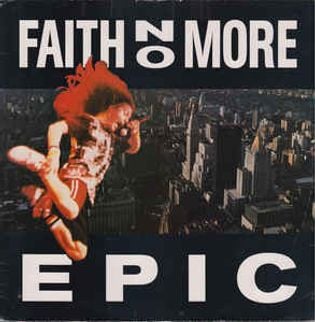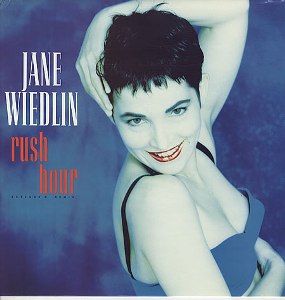 In 1982, Split Enz released Six Months in a Leaky Boat, a song that perfectly encapsulates the band’s flair for theatricality, quirky lyricism, and melodic invention. Hailing from New Zealand, Split Enz had long been masters of blending the absurd with the emotionally resonant, and this track is no exception. Part nautical allegory, part metaphorical exploration of human struggle, and part infectious pop anthem, Six Months in a Leaky Boat has endured as a cultural touchstone, a song that invites listeners to dance, laugh, and reflect all at once.
In 1982, Split Enz released Six Months in a Leaky Boat, a song that perfectly encapsulates the band’s flair for theatricality, quirky lyricism, and melodic invention. Hailing from New Zealand, Split Enz had long been masters of blending the absurd with the emotionally resonant, and this track is no exception. Part nautical allegory, part metaphorical exploration of human struggle, and part infectious pop anthem, Six Months in a Leaky Boat has endured as a cultural touchstone, a song that invites listeners to dance, laugh, and reflect all at once.
The opening notes immediately establish the song’s unique tone. A rhythmic, choppy drumbeat evokes the motion of waves, while synths swirl in a way that feels both nautical and whimsical. From the first few seconds, you’re mentally placing yourself on the deck of a leaky vessel, bobbing along with uncertainty and excitement. The instrumentation perfectly mirrors the lyrical narrative: an epic, metaphorical voyage undertaken with courage, absurdity, and just a hint of panic. In a way, the music itself becomes a character in the story, propelling the listener forward like the relentless, rocking waves themselves.
Vocally, Tim Finn—the primary songwriter and lead singer for the track—delivers a performance that balances urgency, theatricality, and sardonic wit. His voice carries the narrative, swinging between earnest determination and playful exaggeration. The lyrics are filled with nautical imagery, metaphors about survival and endurance, and subtle nods to the unpredictability of life itself. It’s a masterclass in storytelling: Finn conveys the drama of the voyage while simultaneously inviting the listener to recognize the absurdity of the situation. There’s an unmistakable charm in how seriously he delivers lines about a leaky boat, storms, and the passage of six harrowing months, as if recounting a true epic while barely keeping a straight face.
One of the song’s most remarkable qualities is its layering of meaning. On the surface, it’s a tale of literal seafaring: enduring harsh conditions, navigating challenges, and surviving despite adversity. Dig a little deeper, however, and the song can be read as a metaphor for the trials of life, creativity, or even the music industry itself. Split Enz were navigating their own “leaky boat” in the early 1980s, experimenting with new sounds, pushing boundaries, and enduring the unpredictable waters of fame. Six Months in a Leaky Boat captures this duality brilliantly: it’s both a fun, bouncy pop song and a clever reflection on perseverance.
Musically, the track is quintessential Split Enz: inventive, dynamic, and meticulously arranged. The percussion mimics the rhythm of waves, creating a sense of motion and urgency, while the keyboards and synths add color and texture, enhancing the feeling of adventure. The bassline provides a solid foundation, grounding the song’s whimsy and keeping the groove steady even as the melodies twist and turn. The song’s arrangement demonstrates the band’s deep understanding of how to balance complexity and accessibility: it’s layered enough to reward close listening, yet catchy enough to lodge itself in your brain after just one play.
The chorus of Six Months in a Leaky Boat is particularly effective, combining memorable hooks with rhythmic propulsion. Finn’s vocals soar over the instrumentation, reinforcing the song’s themes of endurance, struggle, and triumph. It’s a moment of communal catharsis: the listener is swept along with the narrative, compelled to sing, dance, and acknowledge the absurd beauty of surviving a metaphorical—or literal—six-month journey. There’s humor here as well: the idea of enduring half a year in a boat that may literally fall apart is simultaneously ridiculous and relatable, capturing the human tendency to persist in the face of daunting odds.
Lyrically, the song is full of clever turns of phrase, nautical metaphors, and humorous exaggeration. Lines about “stormy waters” and “soggy decks” are as much about the trials of daily life as they are about maritime adventure. There’s a vivid sense of imagery: you can picture the band—or metaphorical sailors—battling waves, repairing leaks, and surviving by wit and determination alone. Split Enz’s genius lies in their ability to make these metaphors feel simultaneously absurd and emotionally resonant: the song invites laughter even as it evokes sympathy for its beleaguered protagonists.
Instrumentation plays a key role in reinforcing these themes. The keyboards, particularly the glockenspiel-like tones that weave through the song, add a layer of playfulness, emphasizing the theatricality of the voyage. The drums and percussion mimic the unpredictable motion of the sea, while the bassline anchors the song’s momentum. Guitar flourishes punctuate moments of tension, adding drama and flair. Each instrument contributes to a musical narrative that mirrors the lyrical one: the listeners aren’t just hearing a song—they’re riding the waves alongside the crew, feeling both the chaos and the thrill of survival.
Another standout feature is the song’s use of dynamics. Split Enz expertly balances moments of intensity with quieter, reflective passages, creating tension and release that keeps the listener engaged. These shifts mimic the ebb and flow of a journey at sea, reinforcing the sense of narrative and adventure. It’s as if the music itself is alive, reacting to the challenges described in the lyrics and amplifying the emotional impact. This dynamic storytelling through instrumentation is one of the reasons the song remains compelling decades after its release.
Humor is embedded throughout the track, though often subtly. Split Enz were masters of theatricality and playful exaggeration, and Six Months in a Leaky Boat demonstrates this skill perfectly. The very premise—a six-month ordeal on a barely functional boat—is inherently absurd, yet it’s delivered with earnestness that heightens the comedic effect. Finn’s vocal inflections, the slightly over-the-top instrumentation, and the exaggerated sense of peril all contribute to a tongue-in-cheek tone that balances the song’s seriousness. It’s a celebration of resilience and absurdity simultaneously: you’re meant to admire the endurance while laughing at the ridiculousness of the circumstances.
The song also resonates emotionally in ways that go beyond humor. The metaphorical leaky boat can stand in for any prolonged struggle—personal, professional, or creative. Surviving six months of uncertainty, challenge, and hardship is a universal experience, and the song captures this beautifully. Split Enz transforms a quirky, theatrical premise into a reflection on human perseverance, turning what could be a novelty song into a piece with real emotional depth. It’s this blend of humor, melody, and insight that gives Six Months in a Leaky Boat its enduring appeal.
The track’s production is worth noting as well. The sound is crisp and layered, allowing each instrument to shine without overshadowing the vocals. The mix highlights the interplay between rhythm, melody, and harmony, creating a sense of space and movement that mirrors the song’s narrative. Subtle effects—reverb on the vocals, airy synth tones—enhance the sense of floating or rocking on water, immersing the listener in the experience of the journey. The production demonstrates the band’s meticulous attention to detail and their understanding of how sonic texture can enhance storytelling.
Culturally, Six Months in a Leaky Boat was both a critical and commercial success, showcasing Split Enz’s unique brand of intelligent, theatrical pop. It has remained a beloved song in New Zealand and Australia, frequently appearing on radio playlists, live performances, and compilations. Its enduring popularity is a testament to the band’s ability to craft music that is simultaneously whimsical, melodic, and meaningful. The song transcends its era, offering both nostalgia for the early 1980s and a timeless message about resilience, humor, and creativity.
Listening to the song today, it’s easy to appreciate its blend of humor, pathos, and musical sophistication. The melody is instantly memorable, the lyrics cleverly inventive, and the arrangement both dynamic and intricate. The track invites repeated listening: each time, one notices new details—the glint of humor in the keyboard lines, the subtle shifts in rhythm, or the dramatic phrasing of a vocal line. Split Enz rewards attention without demanding it, offering both casual enjoyment and deeper musical appreciation.
The vocal delivery, instrumentation, and lyrical content combine to make Six Months in a Leaky Boat an enduring example of how pop music can be both entertaining and thoughtful. Split Enz were never afraid to experiment, to embrace theatricality, or to combine humor with insight, and this track embodies all of these qualities. It demonstrates that pop music can convey narrative, emotion, and personality in ways that are complex, engaging, and fun.
In conclusion, Split Enz’s Six Months in a Leaky Boat (1982) is a masterful example of quirky, theatrical pop that balances humor, melody, and metaphorical depth. The song’s nautical allegory, clever lyrics, dynamic instrumentation, and infectious rhythm make it both entertaining and emotionally resonant. Tim Finn’s vocal performance brings the narrative to life, while the band’s arrangements reinforce the story, creating a musical journey that feels both epic and absurd.
Whether experienced as a playful adventure, a metaphorical reflection on human perseverance, or a celebration of Split Enz’s theatrical genius, the track remains compelling decades after its release. It’s a song that invites the listener to laugh, reflect, and, most importantly, ride the waves of life with a sense of humor and resilience. Six Months in a Leaky Boat is proof that pop music can be clever, emotional, and fun all at once—a timeless testament to Split Enz’s unique talent.
In the end, the song reminds us that life is sometimes a leaky boat: chaotic, challenging, and unpredictable. Yet with courage, wit, and a great sense of melody, we can endure, even thrive, and perhaps even sing a catchy chorus along the way. Split Enz turned a seemingly ridiculous premise into an enduring anthem, a reminder that music can make the journey worthwhile—even when the deck is wet, the sails are torn, and the waves won’t stop coming.


